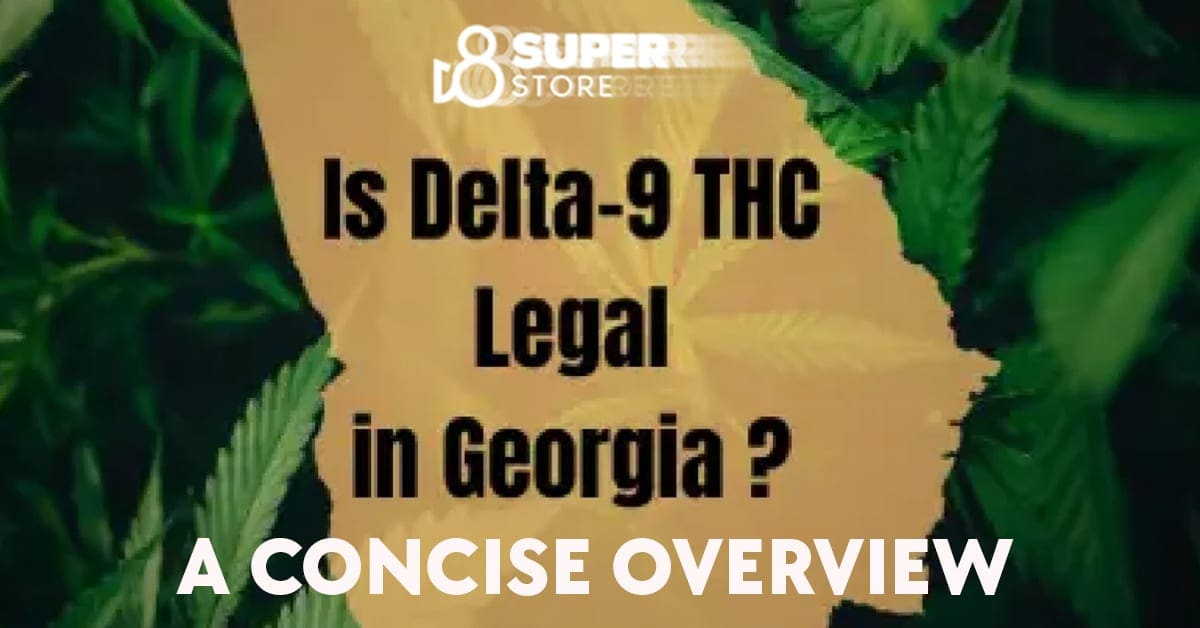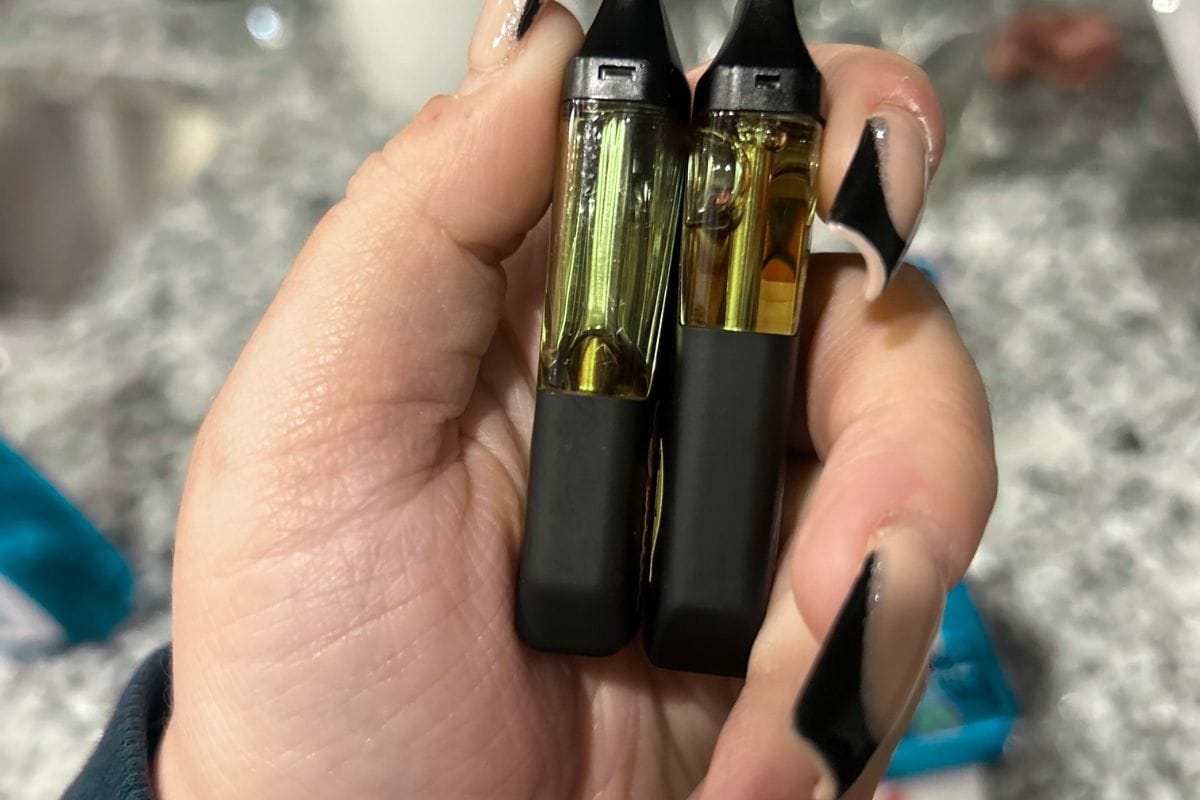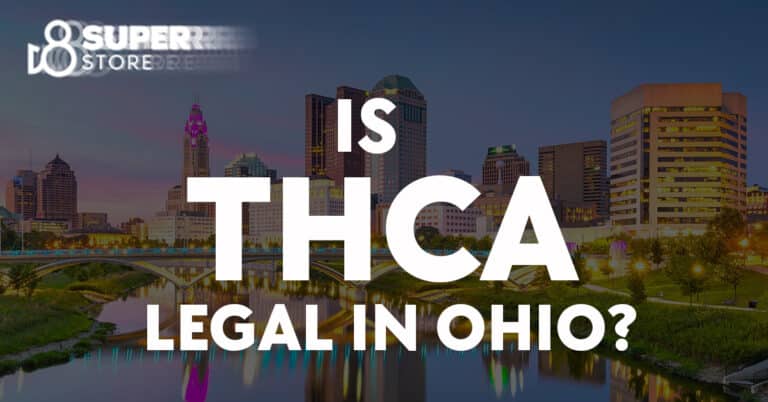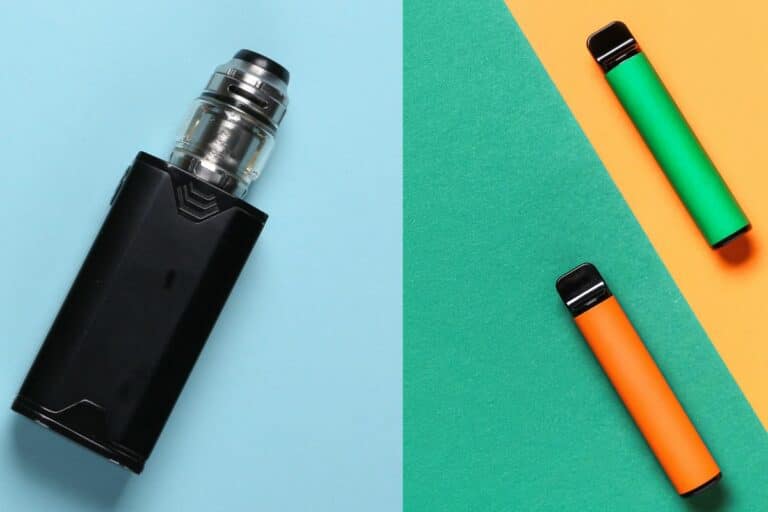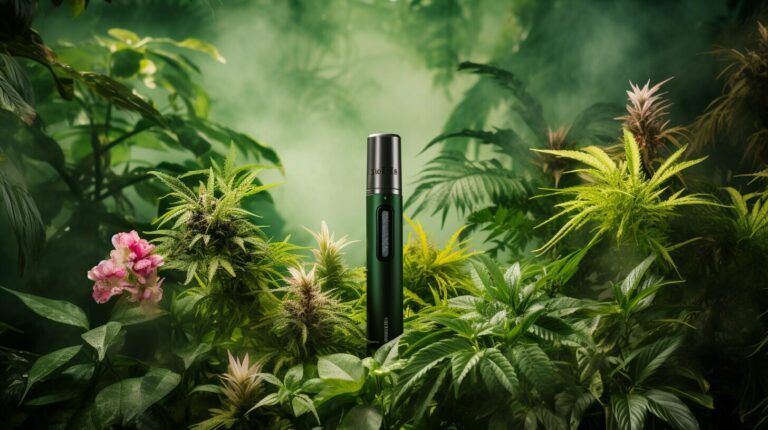Is Delta 9 Legal in Georgia? A Concise Overview
Lately, Delta 9 THC is the buzzword on everyone’s lips, that wonder ingredient in marijuana. Figuring out Georgia’s rules around it seems like a tricky puzzle. We’ll unpack what Delta 9 THC really means, discover whether it’s cool to possess in Georgia, and explore the key laws impacting it. Mixed up about whether Delta 9 THC gets a green light in the Peach State? Hang tight. You’ve stumbled upon the perfect guide to clear up the confusion on this hot subject.
The legality of Delta 9 THC in Georgia can vary depending on its source and concentration. Specifically, hemp-derived Delta 9 THC is considered legal as long as its concentration does not exceed 0.3%1. This differentiation stems from the 2018 Farm Bill, which distinguishes between marijuana- and hemp-derived products, with hemp being considered a legal agricultural commodity. Understanding this distinction is crucial for both consumers and businesses that wish to manufacture, distribute, or sell these products in Georgia.
Key Takeaways
- Hemp-derived Delta 9 THC is legal in Georgia with concentration restrictions
- The 2018 Farm Bill plays a significant role in establishing legality guidelines
- Familiarize yourself with state and federal regulations to ensure responsible use
Delta 9 THC: An Overview
Delta 9 THC, also known as Delta 9-tetrahydrocannabinol, is a primary psychoactive compound found in cannabis plants. This compound is responsible for the sensory, mood-altering, and cognitive effects usually associated with marijuana use. Although related to the less potent Delta 8 THC, Delta 9 THC is vastly different in terms of its psychoactive effects and the legal landscape surrounding its use.
Hemp-derived Delta 9 THC is a variant of the compound obtained from hemp plants, which contain lower amounts of THC compared to marijuana plants. This distinction makes hemp-derived Delta 9 THC products less potent and, in some cases, more legally acceptable than their marijuana counterparts. However, the legality of these products can still vary from state to state, as well as on a federal level.
The effects of Delta 9 THC are wide-ranging and can include euphoria, relaxation, and an altered sense of perception. While many users appreciate these psychoactive effects, the compound can also have adverse reactions such as anxiety, paranoia, and impaired coordination. As a result, the use of Delta 9 THC should be approached with caution and in moderation to minimize potential side effects.
In the context of Georgia, the legal status of Delta 9 THC is influenced by both state and federal laws. While hemp-derived Delta 9 THC is generally legal on a federal level, individual states have the authority to regulate or ban its sale and use. Understanding the specific restrictions and allowances in Georgia is crucial for those interested in using Delta 9 THC products within the state.
In conclusion, Delta 9 THC is a complex and widely discussed substance with varying legal status and potential effects. By staying informed about the specific regulations in your area and using the substance responsibly, individuals can ensure they are abiding by the law and minimizing any risks associated with consumption.
Legality of Delta 9 in Georgia
Delta 9 THC is considered legal in Georgia under specific conditions. In accordance with the Georgia Hemp Farming Act (House Bill 213), Delta 9 THC derived from hemp is permitted, as long as it adheres to a concentration of 0.3% or lower. This law aligns with the federal legalization of hemp containing low concentrations of THC under the 2018 Farm Bill.
However, it is crucial to understand the distinctions between hemp-derived and marijuana-derived Delta 9 THC. While hemp-derived Delta 9 is allowed under HB 213, marijuana possession remains illegal in Georgia according to the state laws.
Moreover, Georgia has specific regulations for low-THC products, which are allowed to have up to 5% total THC (delta-8 and delta-9 combined), as long as they contain more CBD than THC. This regulation applies mainly to oils used for medical purposes.
It’s essential to note that Delta 9 THC legality in Georgia does not extend to gummies or edibles, which are not allowed. Additionally, Delta 9 becomes illegal if its concentration exceeds the limit established by the 2018 Farm Bill, that is, 0.3% in hemp products or 5% in oils for medical use.
In summary, the legal status of Delta 9 in Georgia is largely determined by its source (hemp or marijuana) and its concentration. Adherence to state laws and the Georgia Hemp Farming Act is crucial for those interested in Delta 9 THC within the state.
Federal Laws and Regulations
The relationship between Delta-9 THC and federal law is influenced by several important pieces of legislation, focusing primarily on the differentiation between marijuana and hemp. In the United States, Delta-9 THC is federally regulated under the Controlled Substances Act. Under this act, marijuana is classified as a Schedule I substance, making it illegal on a federal level. However, hemp is treated differently due to its distinct chemical composition and lower Delta-9 THC content.
In 2018, a significant legal development emerged with the passing of the 2018 Farm Bill. As a result of this bill, hemp was removed from the list of controlled substances and established as an agricultural commodity. The central aspect of this decision was the Hemp Farming Act, which legalized the cultivation, processing, and sale of hemp and hemp-derived products. Crucially, these hemp products must maintain a Delta-9 THC concentration of no more than 0.3% in dry weight.
Under federal law, hemp-derived Delta-9 THC with a concentration below 0.3% is now considered legal. Yet, it is essential to understand that individual state laws may still impose restrictions on its sale and distribution. The legalization of hemp on a federal level has provided a stable foundation for the growing industrial hemp market, opening up access to a vast array of hemp-derived products.
In summary, Delta-9 THC derived from hemp is federally legal under the 2018 Farm Bill and the Hemp Farming Act, as long as the concentration remains below the 0.3% threshold. However, state laws, such as those in Georgia, may impose additional restrictions and regulations on the sale and distribution of hemp-derived Delta-9 THC products.
Hemp-Derived Products
Hemp-derived products are gaining popularity due to their wide range of potential benefits and their legal status. The hemp plant itself is a variety of the Cannabis sativa plant, which has been cultivated for centuries for its fiber, seeds, and oil. Unlike marijuana, hemp is low in delta-9-tetrahydrocannabinol (THC), the primary psychoactive compound found in cannabis plants.
In Georgia, the legality of delta-9 THC and hemp-derived products depends on their source and concentration. According to the 2018 Farm Bill, hemp-derived delta-9 THC is legal as long as it does not exceed 0.3% concentration on a dry weight basis. This federal legislation has paved the way for the production and sale of various hemp-derived products, including CBD oil, tinctures, and creams.
The hemp flower is the part of the plant with the highest concentration of cannabinoids, including CBD and trace amounts of THC. In Georgia, the sale and possession of hemp-derived products are legal as long as they meet the requirements set forth by the 2018 Farm Bill. This means that consumers can enjoy the potential benefits of hemp-derived products without worrying about breaking any state laws.
However, it is essential to note that some restrictions still apply to hemp-derived products in Georgia. For example, delta-9 THC is not allowed in gummies or edibles, and its concentration cannot exceed 5% in oils used for medical purposes. As long as hemp-derived products adhere to these limitations, they can be legally sold and consumed within the state.
It is crucial for consumers to ensure that they purchase hemp-derived products from reputable sources that adhere to Georgia’s state regulations. By doing so, they can benefit from the potential advantages of hemp while remaining within the confines of the law.
Cannabinoids and Isomers
Cannabinoids are naturally occurring chemical compounds found in the cannabis plant, specifically in Cannabis sativa L. One of the most well-known cannabinoids is CBD, which has gained popularity in recent years for its potential health benefits.
Another cannabinoid gaining attention is delta 8 THC, which is considered a less potent psychoactive compound compared to its close relative, delta 9 THC. Delta 8 THC is found in smaller concentrations within the cannabis plant, but innovative extraction techniques have allowed for its increased availability in various products.
Isomers, on the other hand, are compounds with the same chemical formula but different structures. Both delta 8 and delta 9 THC are isomers with slight differences in the arrangement of their atoms. This difference in structure leads to varying degrees of potency and potential effects when consuming these cannabinoids.
Georgia has specific laws and regulations in place that dictate the legality of these cannabinoids and isomers. For instance, hemp-derived delta 9 THC is legal in Georgia when it adheres to a 0.3% or lower concentration, in line with federal legislation under the 2018 Farm Bill.
In 2019, Georgia Governor Brian Kemp signed House Bill 213, which legalized all derivatives, extracts, cannabinoids, and isomers derived from hemp. This means that CBD and delta 8 THC are both legal in the state, with no concentration limit, as long as they are derived from hemp.
It’s important to be aware of these regulations and how they affect the availability and use of these cannabinoids and isomers in Georgia, as well as understanding their potential benefits and risks as part of an informed decision-making process.
Manufacturing and Sales
In Georgia, the legality of Delta-9 THC products is closely tied to their source and concentration. Delta-9 THC derived from hemp is considered legal if the THC content does not exceed 0.3%. However, cannabis-derived Delta-9 THC remains illegal in the state.
Manufacturers of Delta-9 THC products in Georgia must adhere to strict regulations in order to remain compliant with state laws. Businesses that produce hemp-derived products often source their raw materials from licensed growers, ensuring that the end product remains within the legal limits for THC content. When it comes to THC oils, Georgia allows up to 5% concentration for medical purposes.
Sales Restrictions
Despite the legality of hemp-derived Delta-9 THC products in Georgia, there are certain restrictions on the types of products that can be sold. For instance, Delta-9 gummies and edibles are not allowed in the state. This means that businesses in Georgia must focus on the production and sale of other forms, such as oils, tinctures, and capsules.
Online Sales
The current legal landscape has led to a rise in online sales of Delta-9 THC products in Georgia. Many online retailers offer a variety of hemp-derived Delta-9 THC products, such as oils and tinctures, which comply with the state’s regulations. Consumers can choose from a wide range of product strengths and formulations, depending on their needs and preferences.
Concentration Limits and Restrictions
In Georgia, hemp-derived Delta-9 THC is considered legal as long as it adheres to specific concentration limits and restrictions. The legal concentration limit for Delta-9 THC in hemp is determined on a dry weight basis, in accordance with the 2018 Farm Bill. This legislation is followed at both federal and state levels, including Georgia, to regulate the production, sale, and consumption of hemp-derived products.
The allowable concentration limit of Delta-9 THC in hemp products is 0.3% by dry weight. This restriction ensures that consumers are utilizing hemp-derived products with minimal psychoactive effects. Hemp products surpassing this federal limit are deemed illegal and subject to penalties under various state and federal laws.
In addition to the 0.3% concentration limit, Georgia has specific regulations surrounding Delta-9 THC in certain products, such as medical oils. Medical oils containing Delta-9 THC are allowed to have concentrations up to 5%, provided they are prescribed for qualified patients under state law.
To adhere to the legal regulations, producers must accurately measure and label the concentration of Delta-9 THC in their hemp-derived products. This ensures that consumers are aware of the THC content and can make informed decisions while purchasing these items.
In conclusion, as long as hemp-derived Delta-9 THC products in Georgia adhere to the concentration limits and restrictions set by both federal and state laws, they are considered legal for sale and consumption.
Product Availability and Usage
In Georgia, hemp-derived Delta 9 THC products are legal as long as they contain less than 0.3% Delta 9 THC, in accordance with the 2018 Farm Bill1. However, it’s important to note that Delta 9 THC from marijuana remains illegal under Georgia state and federal law2.
Delta 9 gummies and edibles are a popular choice among consumers. Unfortunately, Georgia does not permit the manufacture, distribution, or sale of food products infused with Delta 9 THC3. As a result, you will not find Delta 9 THC gummies and edibles in Georgia’s local stores or dispensaries.
Vape shops and gas stations are common places to find hemp-derived CBD products, but the availability of Delta 9 THC products at these locations can be more limited due to the restrictions on food products containing Delta 9 THC in Georgia4.
While the state does not allow for the sale of foods infused with Delta 9 THC, other types of hemp-derived Delta 9 THC products are legally available in Georgia5. Examples of such products include tinctures, topicals, and vaping oils6. Always ensure that these products adhere to Georgia’s regulations and contain less than 0.3% Delta 9 THC.
Legal Penalties and Enforcement
In Georgia, Delta-9 THC is considered legal as long as it is hemp-derived and does not exceed 0.3% concentration in most products, or 5% in oils for medical purposes. However, it is crucial to understand the legal penalties and enforcement when it comes to the possession and distribution of cannabis products with higher THC concentrations.
Possession of marijuana with more than the legal limit of THC in Georgia is classified as a misdemeanor or felony. The severity of the charges depends on the amount in one’s possession. Possessing less than an ounce of marijuana is a misdemeanor, with potential fines up to $1,000 and up to twelve months of imprisonment. Violations with more significant quantities can lead to felony charges, accompanied by higher fines and longer prison terms.
On the other hand, the sale or distribution of higher-THC marijuana products, such as those above the 0.3% limit, is considered a crime in Georgia, with penalties varying depending on the quantity involved. For instance, selling or distributing less than ten pounds of marijuana is a felony punishable by one to ten years of imprisonment and potential fines. As the quantities increase, so does the severity of the punishment, with the harshest penalties reaching up to 40 years in prison and fines upwards of $1,000,000.
It’s essential to be aware of the legal boundaries and enforcement in Georgia to avoid facing the penalties associated with unlawful possession, distribution, or dealing of Delta-9 THC products. Adhering to the limits and regulations can ensure a hassle-free experience for both consumers and sellers. Remember to stay within the legal guidelines and be cautious when dealing with products containing higher concentrations of THC.
Safety Considerations and Responsible Use
When consuming delta 9 THC products, it is important to prioritize safety and responsible use. As delta 9 THC is a naturally occurring psychoactive compound, it can induce a state of relaxation and euphoria. However, it is vital to start with a low dosage and gradually increase it as needed, always giving ample time for the body to react.
Before trying delta 9 THC in Georgia, one should familiarize themselves with the legal status of the compound in the state. Keep in mind that while hemp-derived delta 9 is legal in Georgia, marijuana-derived delta 9 remains illegal.
In the interest of safety, it is essential to know the source of your delta 9 THC products. Purchasing from reputable retailers and manufacturers can ensure that you are consuming hemp-derived delta 9, which complies with Georgia state regulations. Moreover, it is crucial to understand the product’s potency to determine the appropriate dosage.
When consuming delta 9 THC gummies or other edibles for the first time, start with a low dosage to gauge your body’s reaction. As the effects may take time to manifest, practice patience and moderation to avoid overconsumption. Keep in mind that individual tolerance levels vary, and what might be an ideal dose for one person may be overwhelming for another.
It is also worth noting that, like any substance, overuse of delta 9 THC may carry risks. To maintain a balanced and responsible approach, consider incorporating regular breaks and abstain from excessive consumption. In addition, refrain from engaging in activities that require focus and concentration, such as driving or operating machinery, when under the influence of delta 9 THC.
By following these safety considerations and guidelines, you can enjoy the relaxation and euphoria of delta 9 THC while minimizing potential risks.
Frequently Asked Questions
Are Delta 9 products legal in Georgia?
Delta 9 THC is legal in Georgia if it adheres to the limits as set out by the 2018 Farm Bill. However, Delta 9 THC, whether hemp-derived or otherwise, may not be put into food products in Georgia.
What are the regulations for Delta 9 THC in Georgia?
In Georgia, Delta 9 THC is regulated under the 2018 Farm Bill. This means that if a product contains less than 0.3% Delta 9 THC, it is considered legal. However, it is worth noting that Georgia does not permit Delta 9 THC to be used in food products.
Can you purchase Delta 9 gummies in Georgia?
Since Delta 9 THC is not allowed in food products in Georgia, it is unlikely that you can legally purchase Delta 9 gummies in the state.
Is it legal to buy Delta 9 vapes in Georgia?
As long as the Delta 9 THC concentration is below 0.3% as per the 2018 Farm Bill, it is legal to buy Delta 9 vapes in Georgia.
How does Georgia’s Delta 9 law compare to its neighbors?
Delta 9 THC laws vary from state to state. Georgia’s Delta 9 law is relatively moderate, with its legality depending on the product adhering to the 2018 Farm Bill’s less than 0.3% THC content requirement. Neighboring states may have different laws and restrictions, so it is essential to research each state’s regulations before purchasing or consuming Delta 9 products.
What are the penalties for possessing Delta 9 in Georgia?
Penalties for possessing Delta 9 THC in Georgia will depend on whether the product in question follows the state’s Delta 9 THC regulations. If the product contains more than 0.3% Delta 9 THC or is used in food products, the possession could be considered illegal, and the person could face penalties. It’s crucial to carefully review the local laws and restrictions to avoid getting into trouble.

